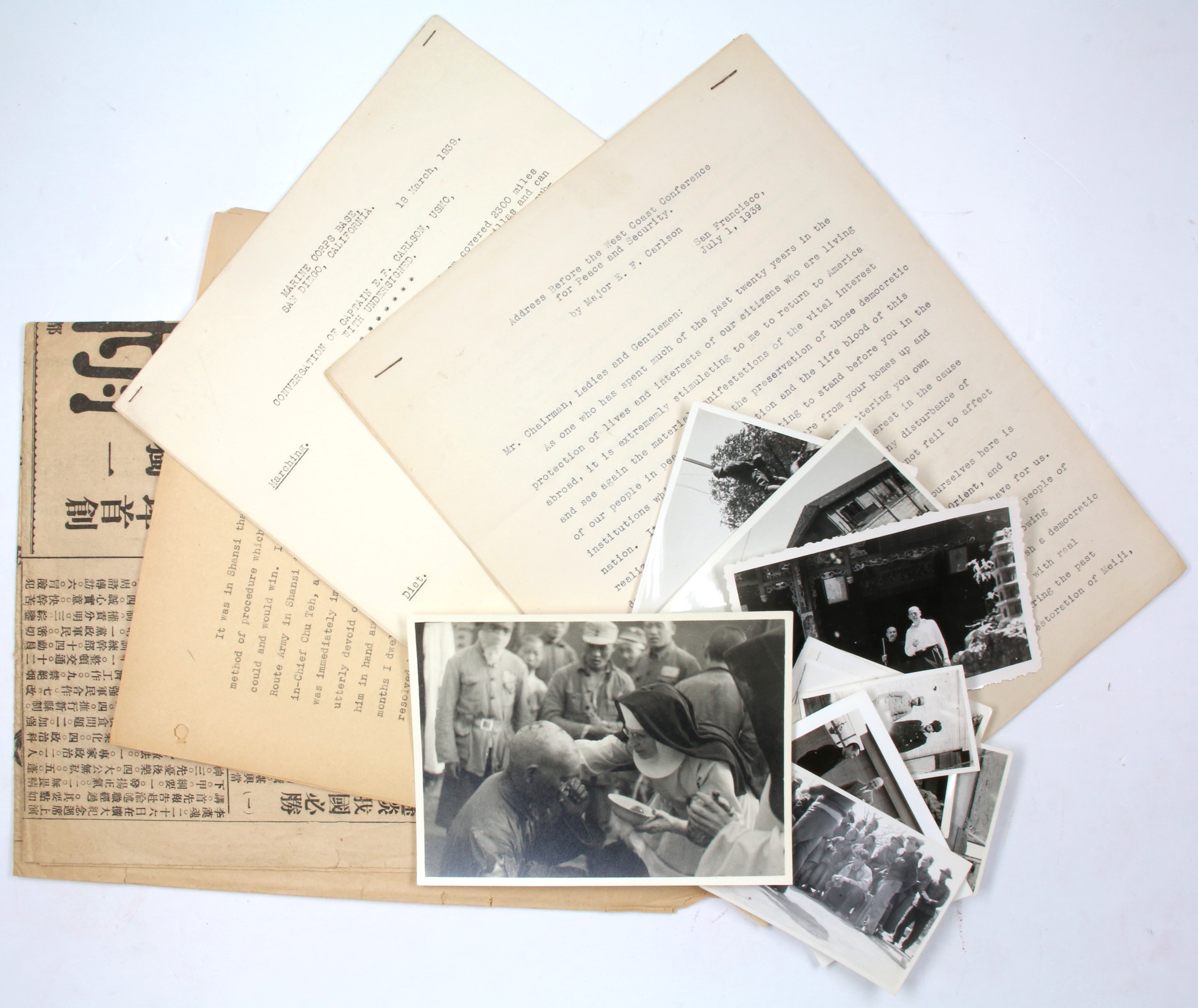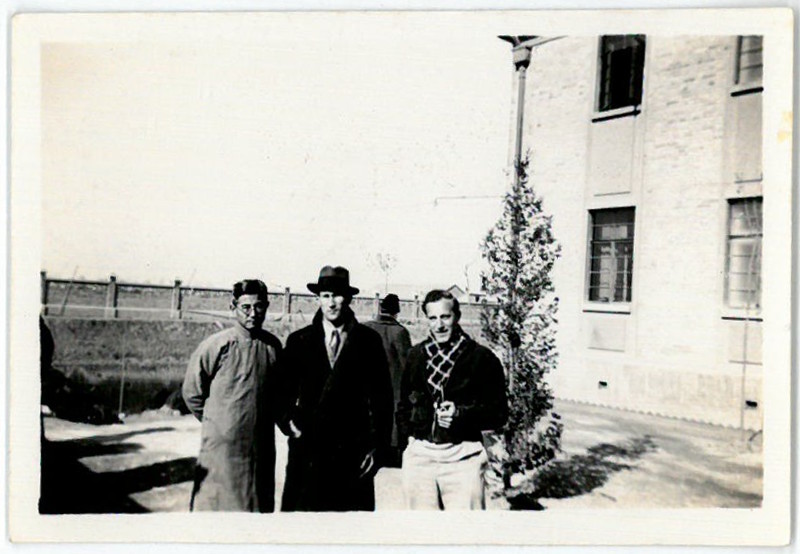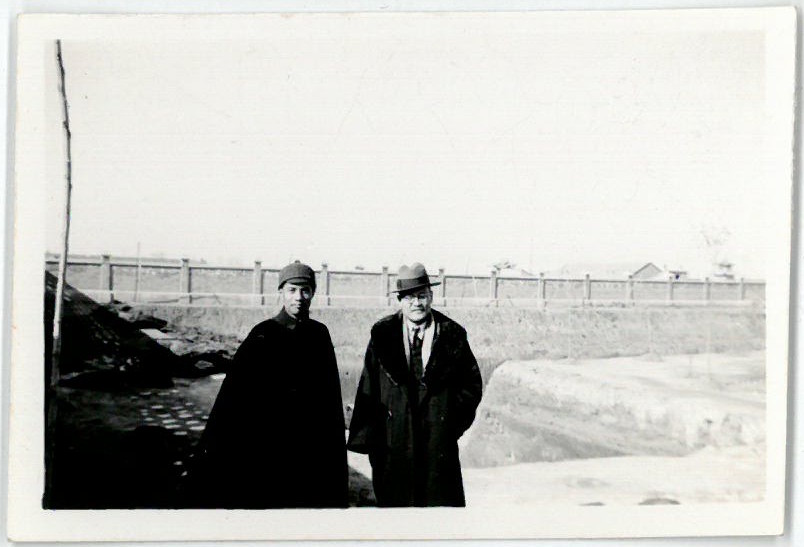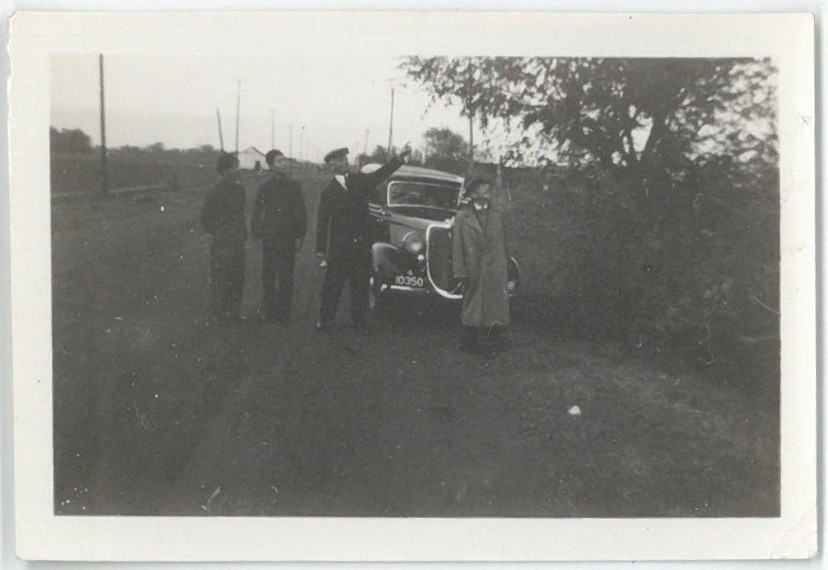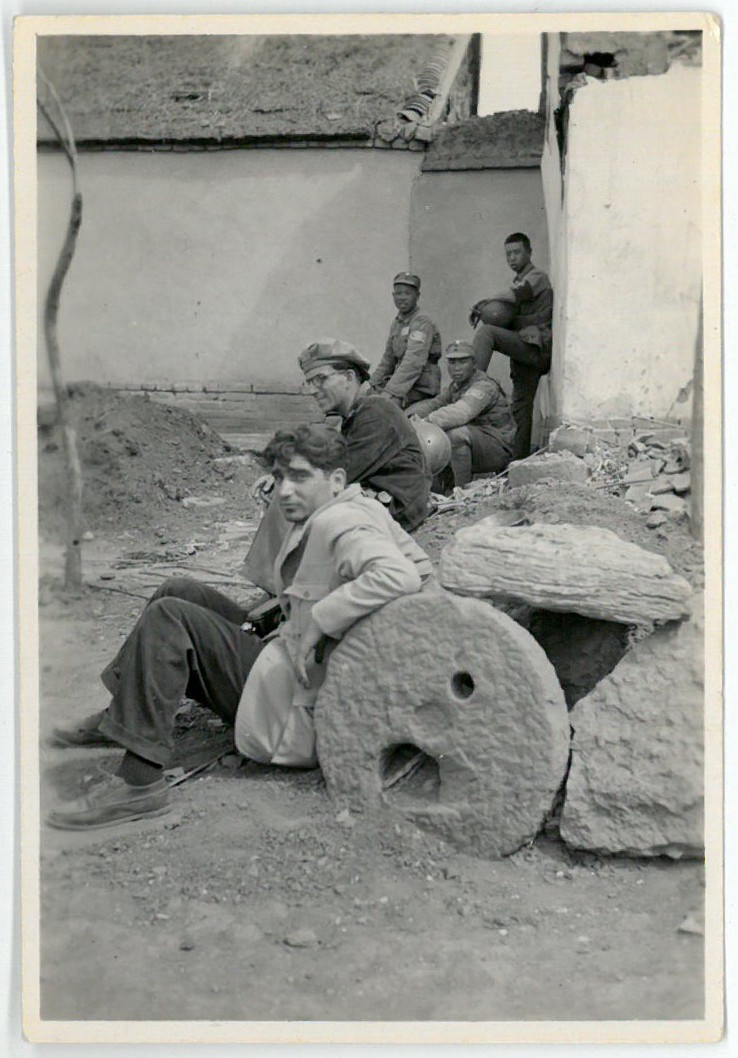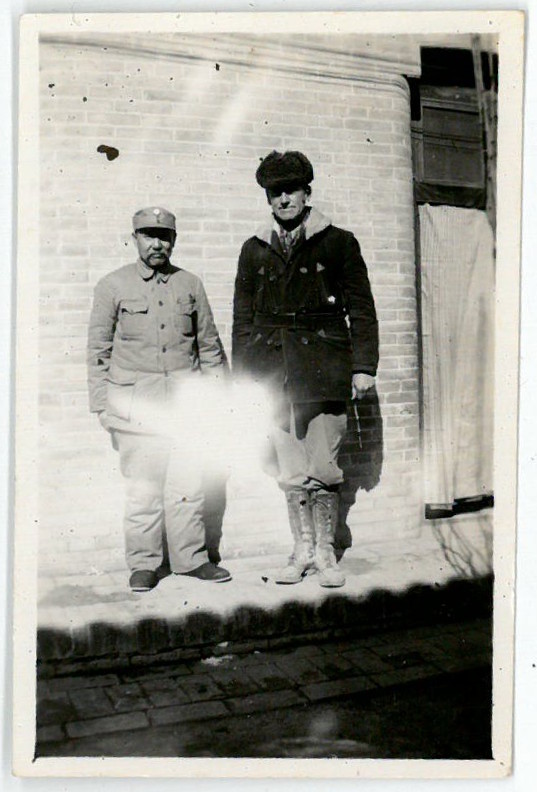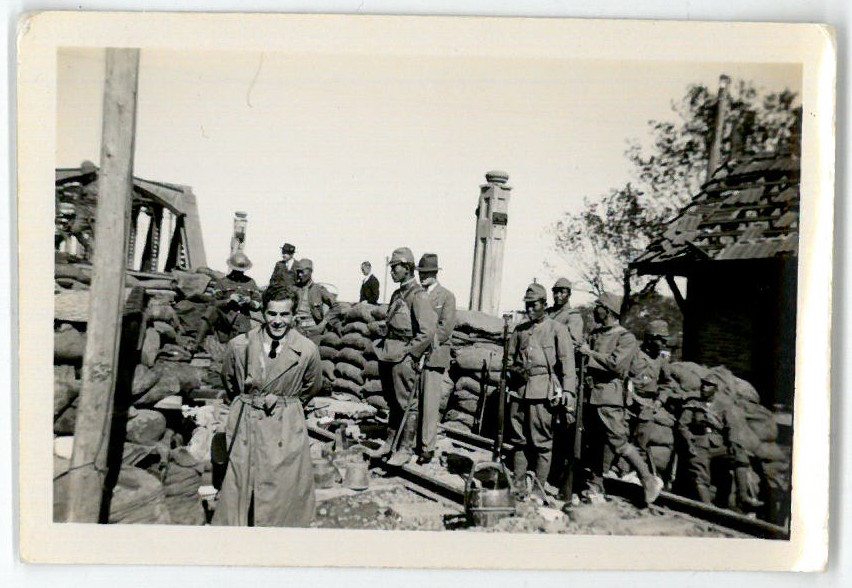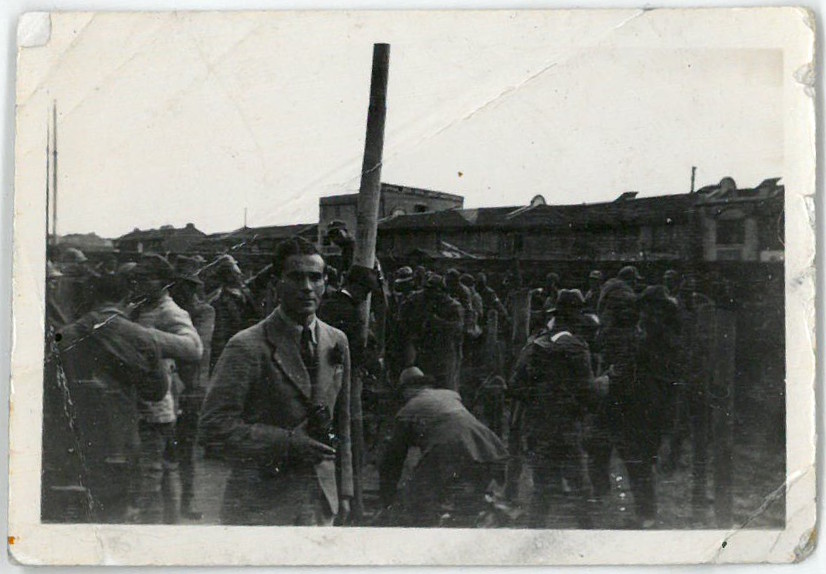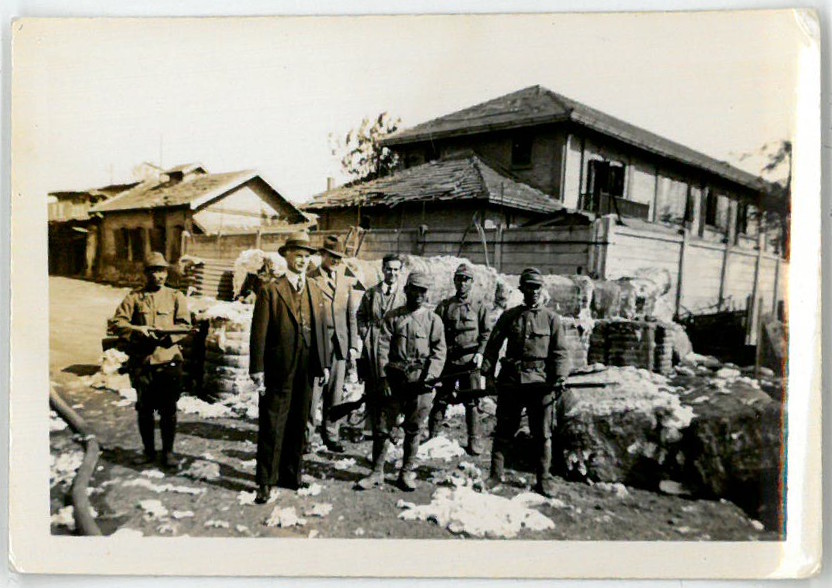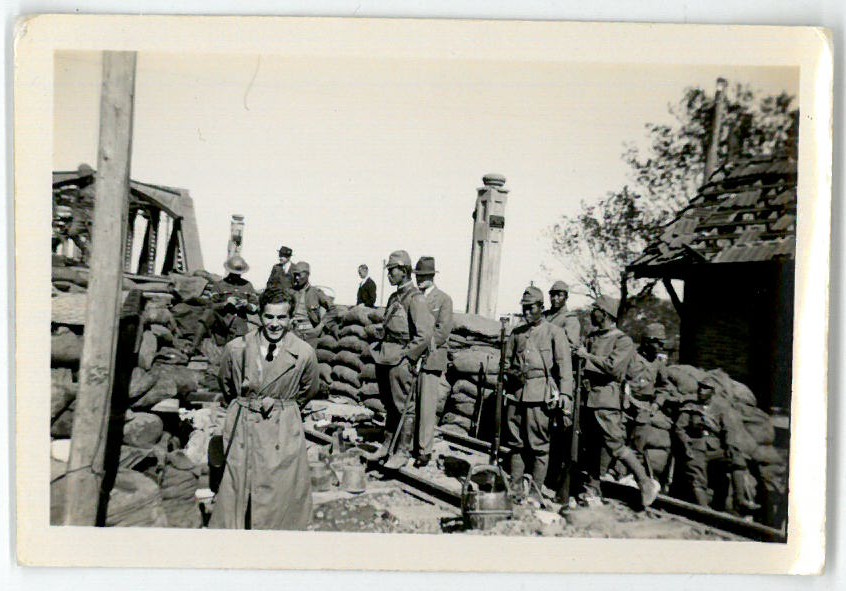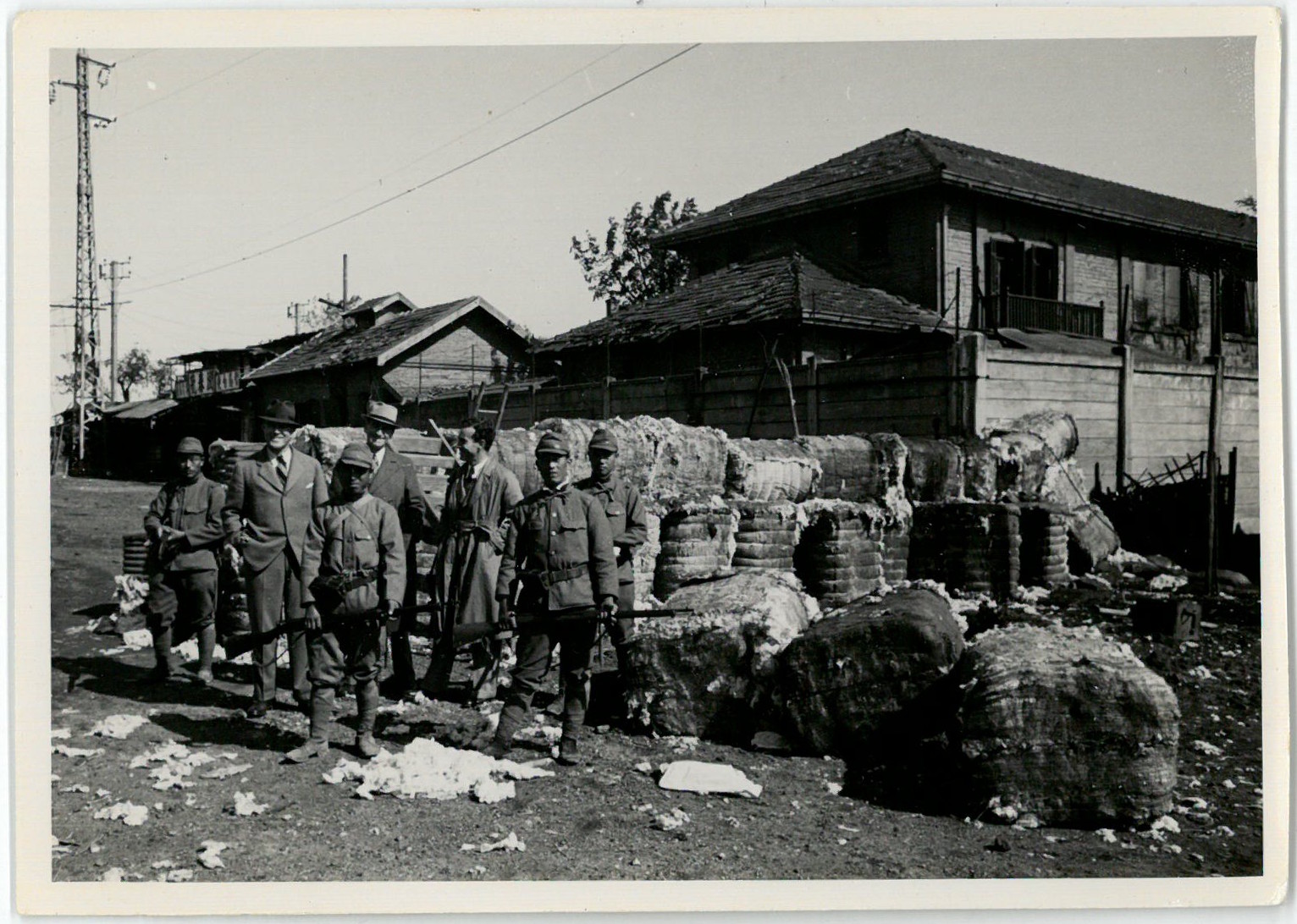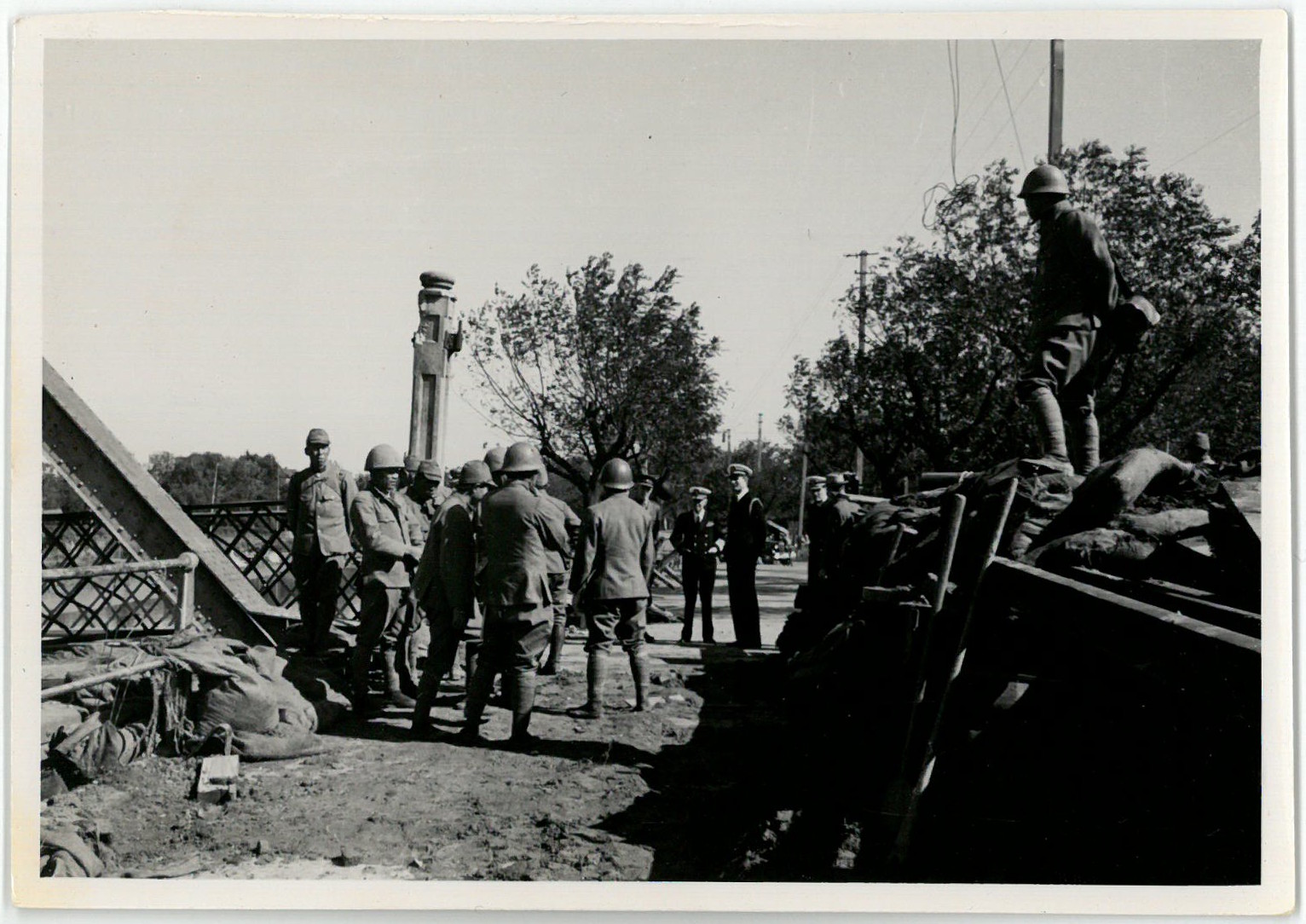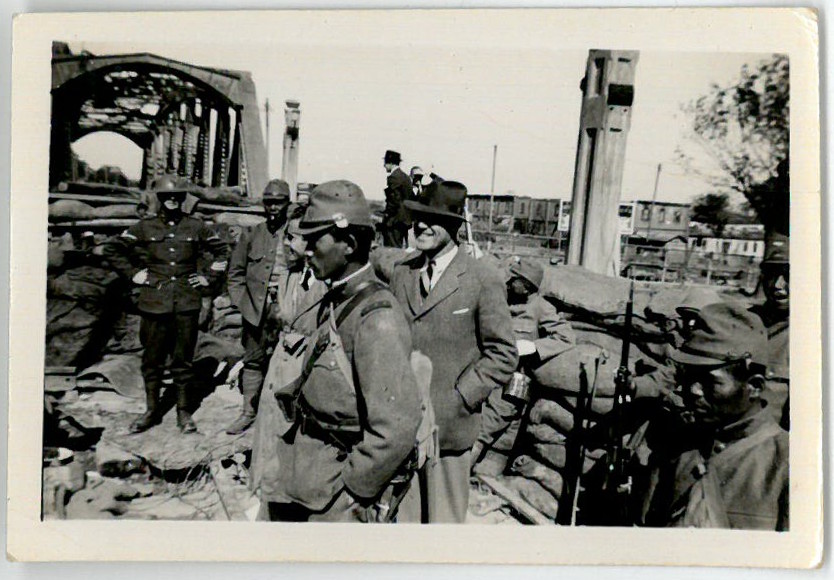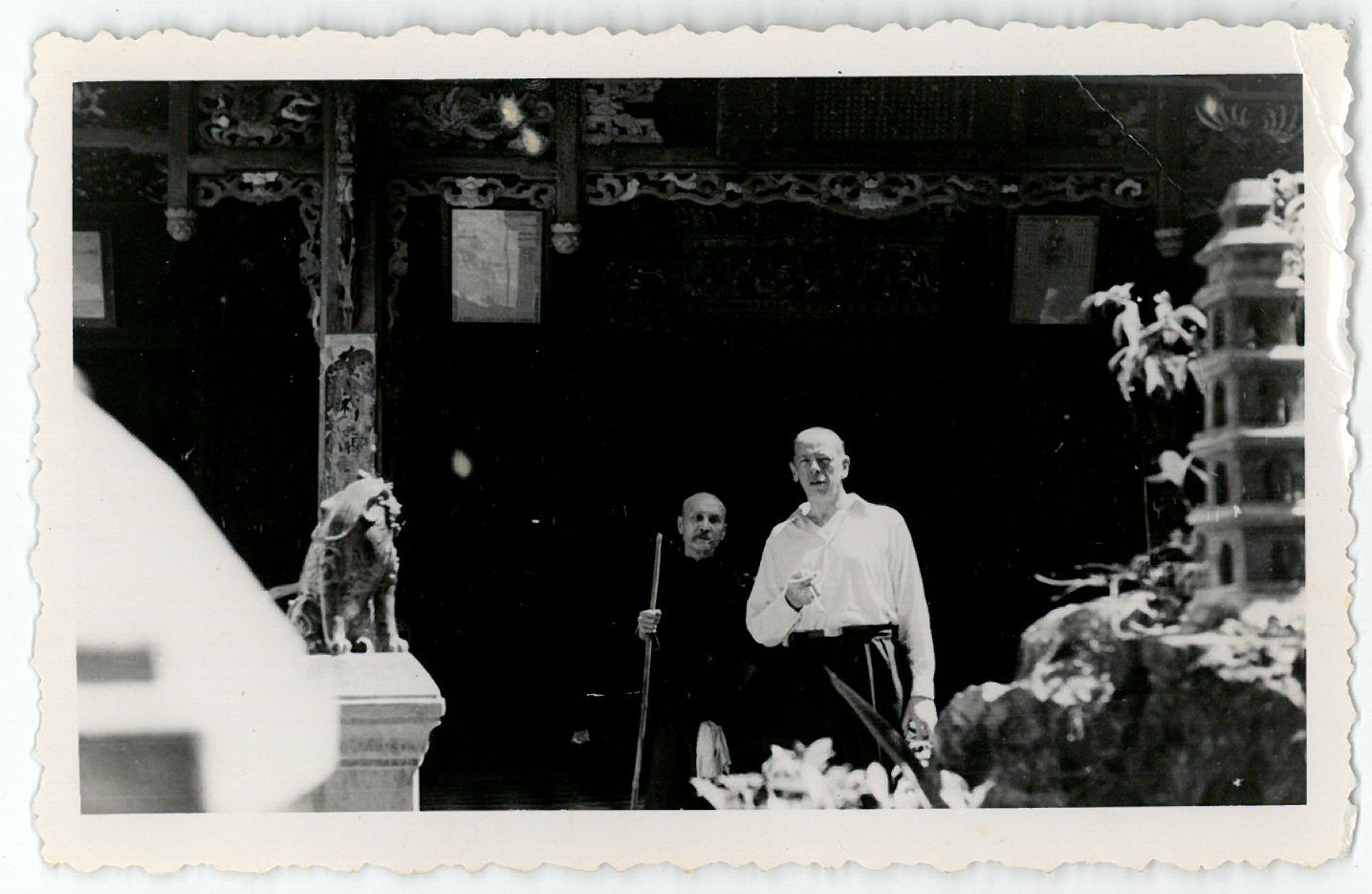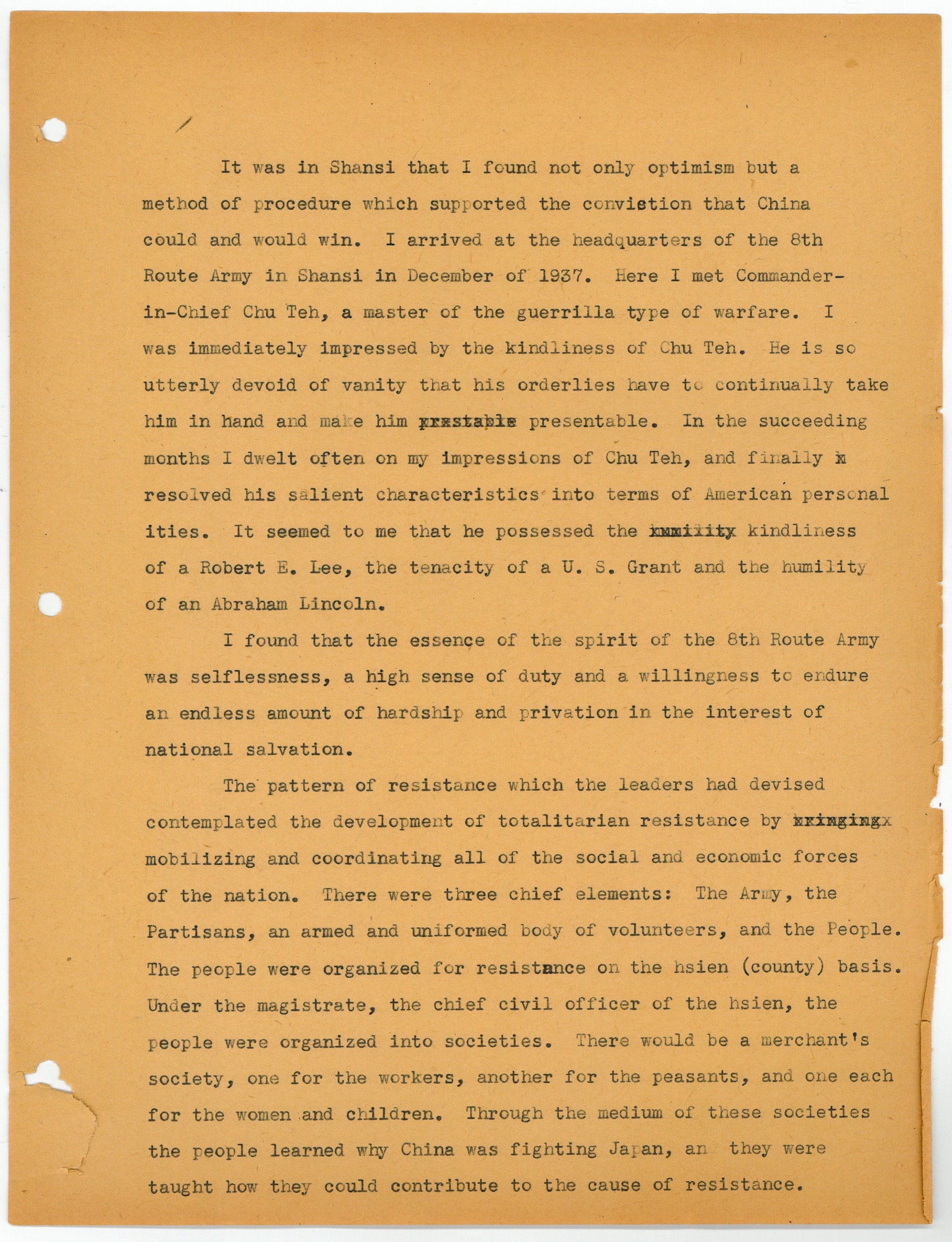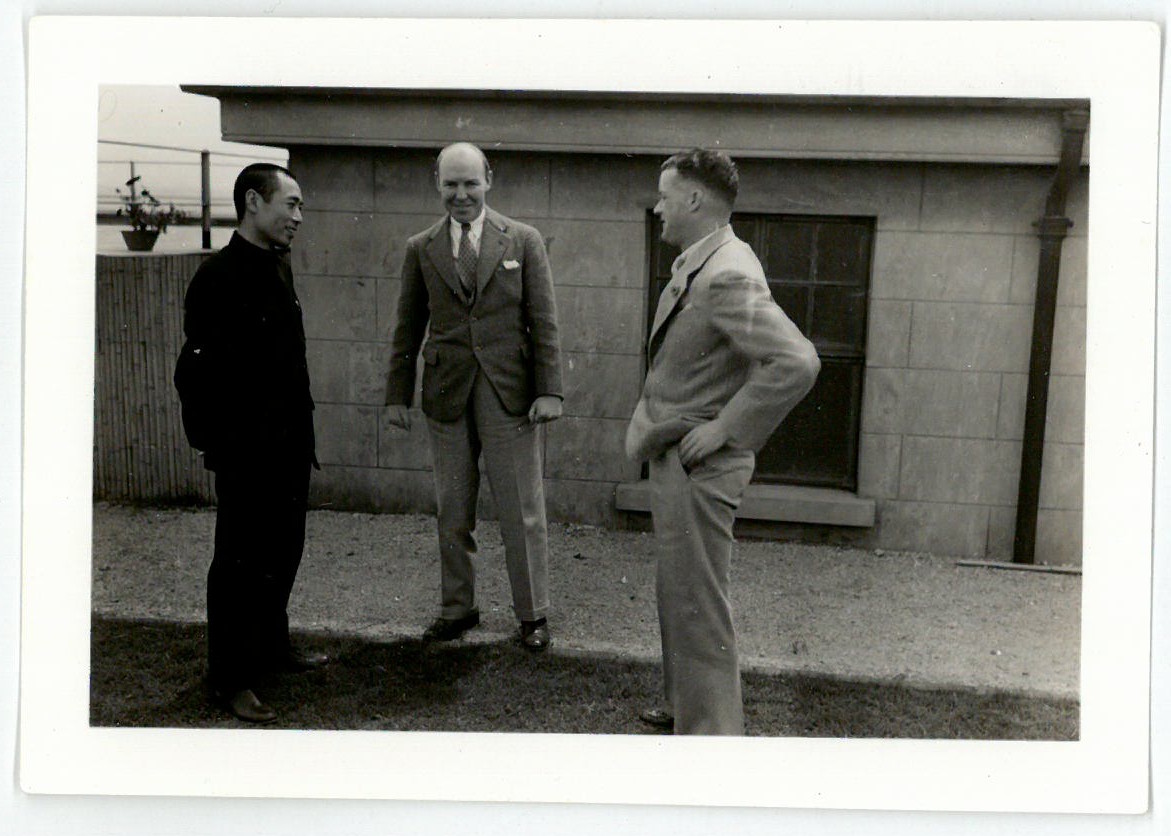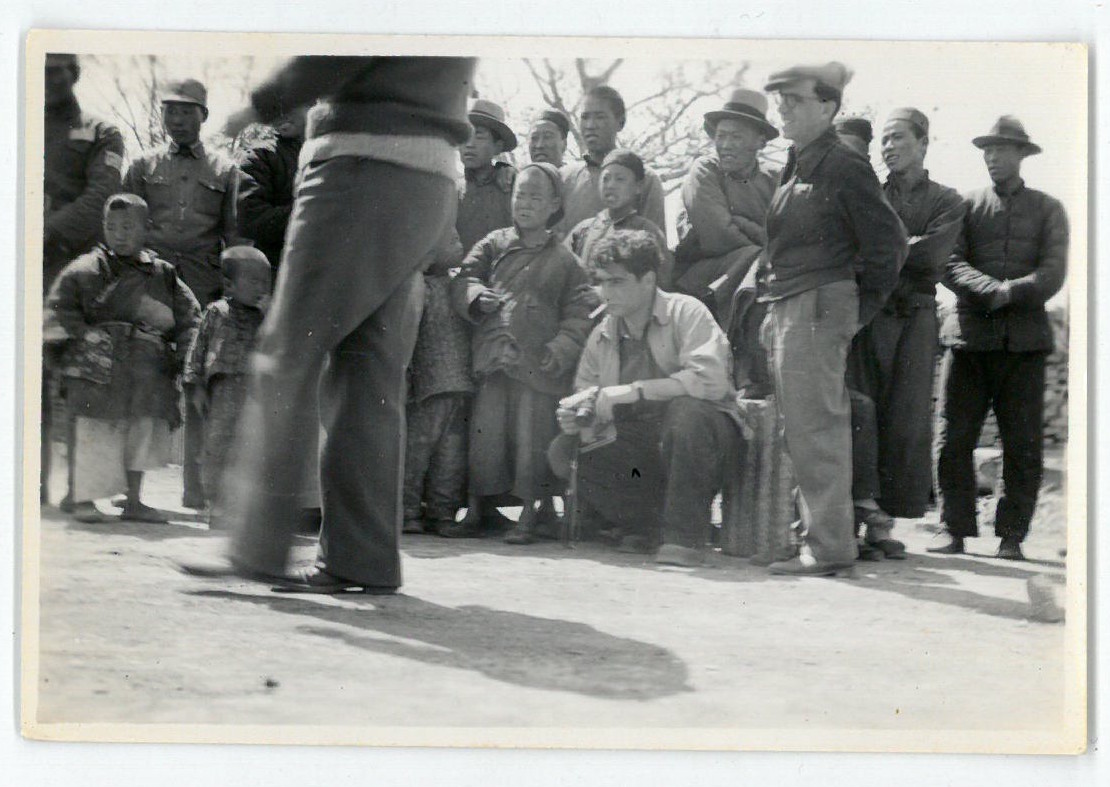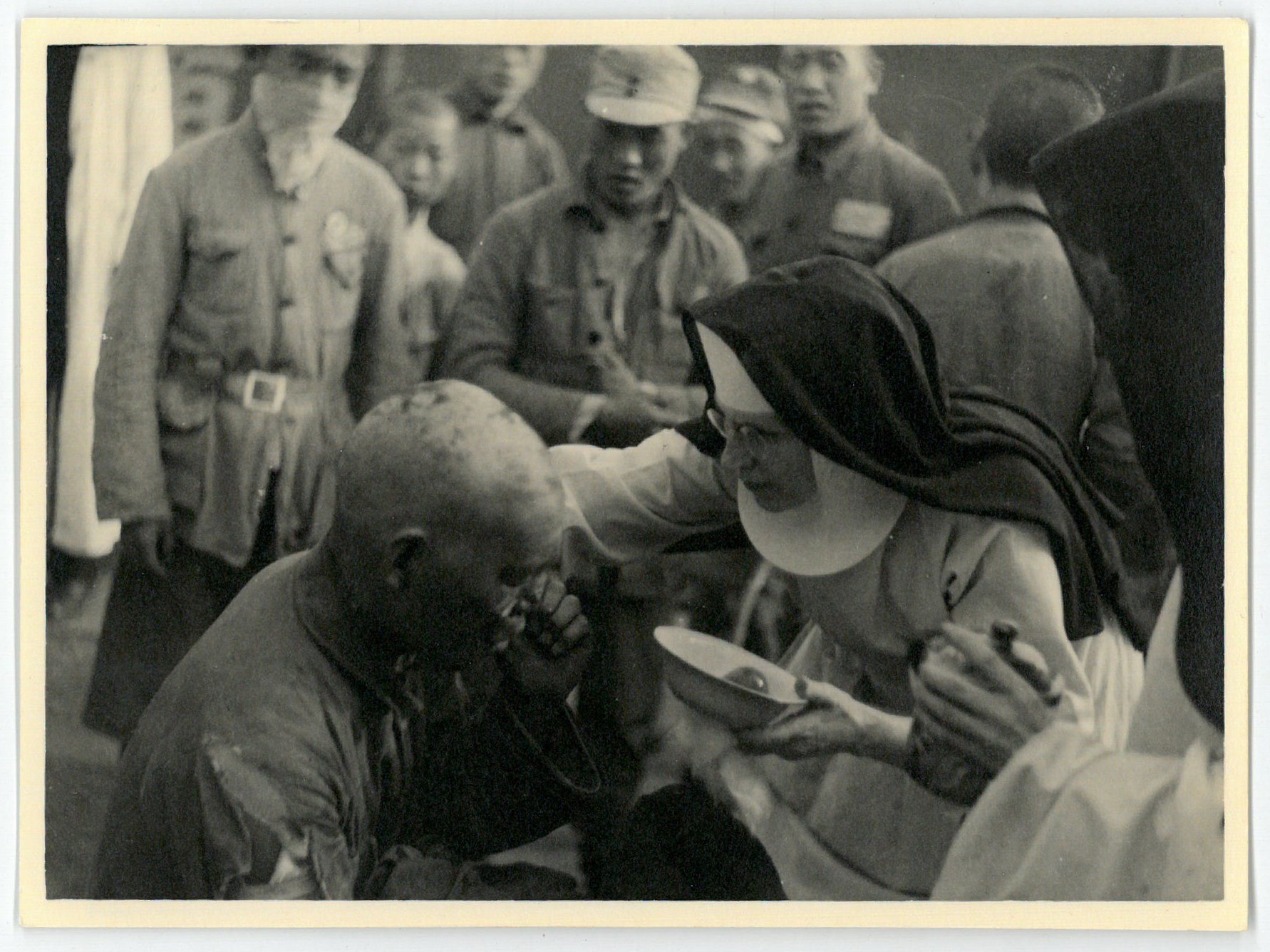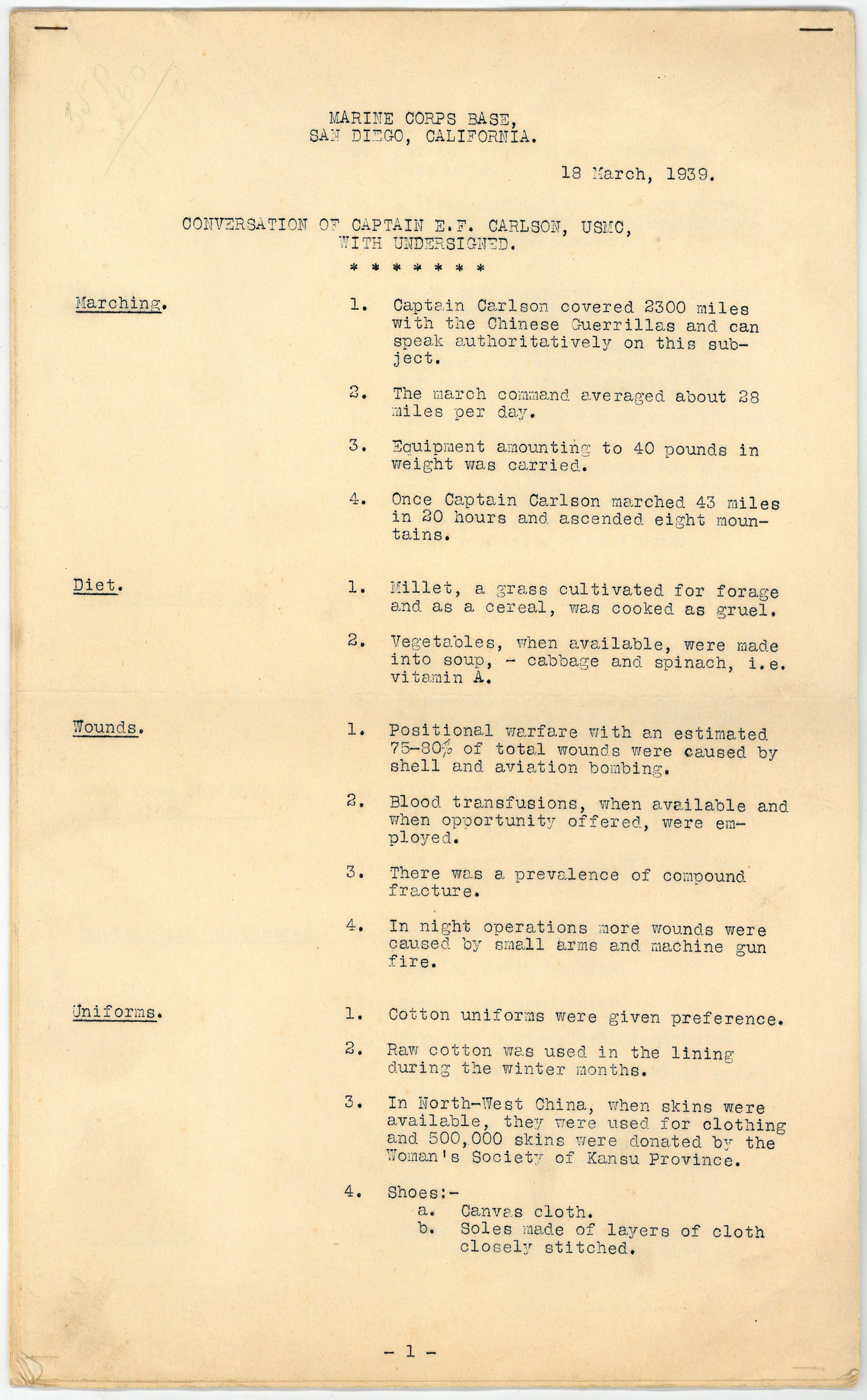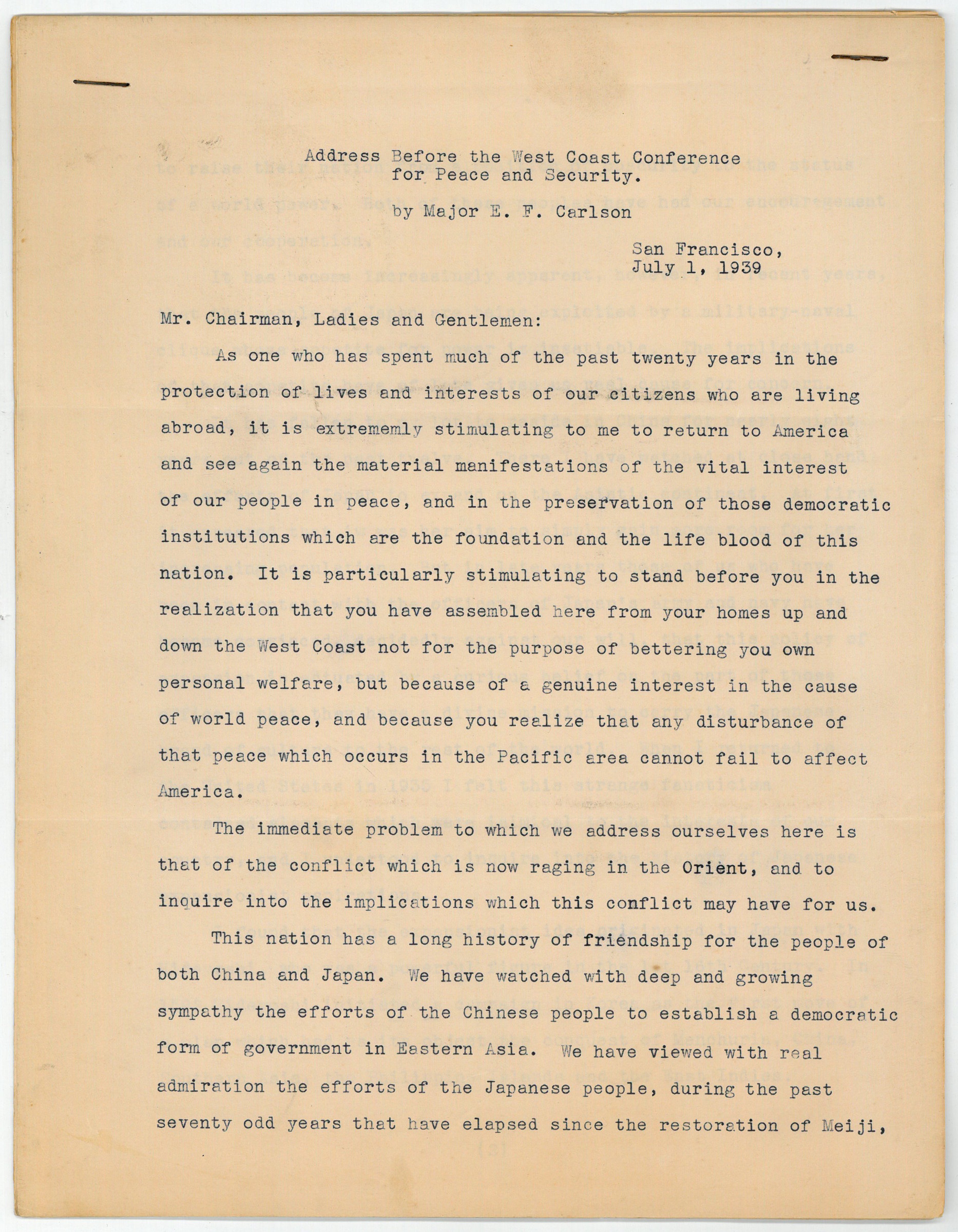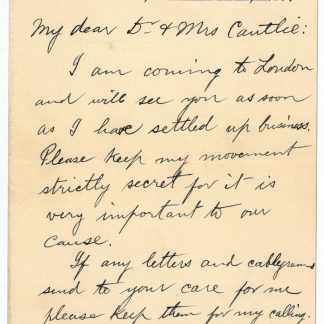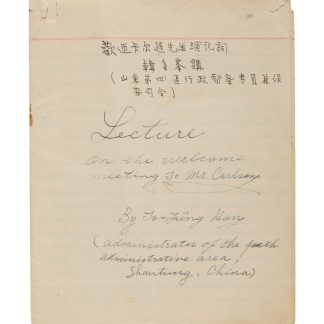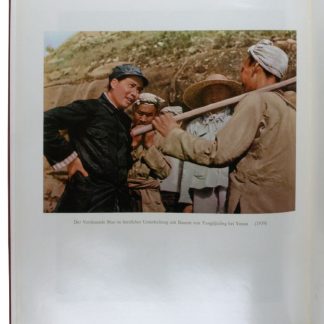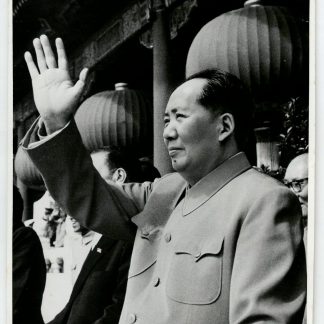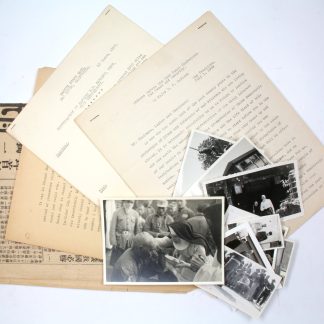The American Marine who befriended Mao and Chiang Kai-shek
Archive of an American military observer in China.
15 black and white photos; 2 folio, typed speeches, 11 pp. and 15 pp.; 4 pp. of the Chinese-language San Francisco newspaper China Times (Jinshan Shi Bao); and a 1939 U.S. Marine Corps review of the state of the Chinese Army Medical Services, 9 pp., with chart.
€ 15,000.00
An archive of photographs and speeches from Evans Carlson, U.S. Marine and unlikely champion of China. Carlson spent nearly eight years in China as a military observer and marched an estimated 2,300 miles across the country with its armies in the Second Sino-Japanese War; in his papers he reflects on personal chats with Mao and Chiang Kai-shek, and describes his impressions, made on the front lines, of Zhu De, Sun Lianzhong, Li Zhongren, and Ma Zhanshan. He was present at the final days of the Battle of Tai'erzhuang, and toured with both the KMT and, extensively, with the 8th Route Army, with whom he spent the end of 1937 and most of 1938. The weight of this experience was lifelong and transformative.
This archive tracks the impact of Carlson's time in China, from his photographs with Chinese troops to one of his official reports, to his decision to resign his commission - having been in the U.S. military since age 16 - to write and speak about the plight of China full-time. In an unpublished draft, Carlson, who had found himself on speaking terms with both Mao and Chiang Kai-shek, relates:
"[I] went first to Yenan, headquarters of the leftist group. There I interviewed Mao Tse-tung, the brillian [sic] leader of that group. [...] I inquired what sort of plan his party had for the future - after the war. He replied that the Party hoped to continue the entente with the Kuomintang, looking to the establishment in China of a real domocracy [sic] with a two party government. That they believed that the government should own the railways, mines and banks; that they favored the development of cooperatives and the encouragement of private enterprize [sic]. […] Five months later I related these points to Generalissimo Chiang Kai-shek, and asked him what his attitude towards them was. His reply was a succinct 'Ch'a pu to', meaning, about the same".
About the generals on the front lines Carlson says still more. He describes Zhu De, "a master of the guerrilla type of warfare", and how he accompanied Li Zhongren, "a strong nationalist, and one of China's topside military leaders", to witness Tai'erzhuang from the HQ of Sun Lianzhong: "A curious feature of this battle is that the defensive positions of the Chinese were along the Grand Canal [...] but the Chinese positions were on the side towards the enemy. When I mentioned this fact to General Sun he replied: Over three hundred years before Christ a famous Chinese general name [sic] Wu Tze remarked that troops always fought best when there was an obstacle behind them".
Altogether, a fascinating and colourful sketch of China in '37-'38, through the eyes of an American deeply sympathetic to the cause.
Drafted speech and newspaper toned, as expected, with marginal notes; in excellent condition.

